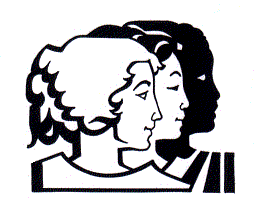Avoiding Dioxins and PCBs - What You Can Do
Excerpt from Endometriosis Sourcebook
by Mary Lou Ballweg
Although dioxins, PCBs and other organochlorines are very prevalent in the modern world, there are some clear steps you can take to avoid at least some of the exposure. Here are some suggestions:
1. Avoid contaminated fish ( see the preceding article, "Dioxins, PCBs, and Endometriosis. . . ").
2. Consider eating lower on the food chain - more vegetables and grains; fewer animal products. The more animal products you consume, the more pollutants you will encounter since pollutants accumulate in the fatty tissue.
3. Trim away the fat from meats and fish you do eat, and remove the dark stripe down the back of fish fillets. Cook foods in way that allow the fat to drain away from what's eaten (meat on racks, for instance) and don't use the fat for gravies, etc.
4. Even better, go organic. Organic growers guarantee their foods have been grown without toxic chemicals and hormones added to the feed. Even tasty organic poultry and meats are now available in natural food stores. If organic food is too expensive, consider using it at least before conception and during the most critical first six to eight weeks of pregnancy.
5. Check on the pollutants in your water supply with local authorities or by having testing done. (If the water supply comes from the Great Lakes, you can skip this step and go straight to getting a water purifier!). Excellent water purifiers now exist that can c remove PCBs, lead, mercury, chlorine, and other contaminants and will cost less over time than buying bottled water. If you use bottled water, check that the bottler is a member of the International Bottled Water Association (IBWA), which requires members to meet certain standards. At the very least, use pure water during pregnancy.
6.Substitute cloth products for bleached paper one that have dioxin residues: hankies for facial tissues, cloth towels for paper towels, cloth napkins for paper ones. Switch to unbleached coffee filters. Bathroom tissue manufactured in a dioxin free process is available from some specialty and health stores and from the Seventh Generation catalog. (Seventh Generation Catalog Request, Colchester, VT 05446-1672.)
7. Switch to menstrual products that do not have dioxin residues in them. See the following article, "Dioxin Danger Tampons.." for sources. And before you throw out that last box of napkins or tampons, call the 800 number with the product and tell the company why you're switching.
8. Find safe substitutes for chlorine bleaches and cleaning products used in your home (and workplace too if possible).
9. Recycle paper and use recycled paper. Encourage recycling and using recycled paper at your workplace. Use both sides of the paper. As many as 1,000 organochlorines are released with paper bleaching. (The association uses recycled paper in its newsletter.)
10. If you're among the fortunate who are able to invest, consider "green" investing. Quite a number of "alternative" funds are available that screen companies for both traditional financial criteria and their environmental record. A helpful resource, You, Your Money and the World, is available from C0-op America, 1612 K St. N.W. Suite 600, Washingotn DC 20006, 1-800-584-7336.
11. Write to paper companies and ask them to do something important for their future and ours- plan to phase out chlorine bleaching and plan for less toxic manufacturing process. The book Whitewash has much background information that will help you with this step. It is available from Women and Environments Education and Development (WEED) Foundation, 736 Bathurst St., Toronto, ON Canada M5S 2R4, (416) 516-2600. WEED has begun a campaign to eliminate organochlorines in sanitary products.
12. And now for a really tough one - what about breast feeding? One wonders if there are testing services available as there are for water. If indeed one's breast milk is contaminated, would it make sense to pump it and dispose of it (as hazardous waste presumably)? The true tragedy of toxic pollution is clear in an issue like breast feeding- pollution could rob us of the ability to have children and to engage in something as beautiful and powerful as breast-feeding! Ideas, anyone?
|
